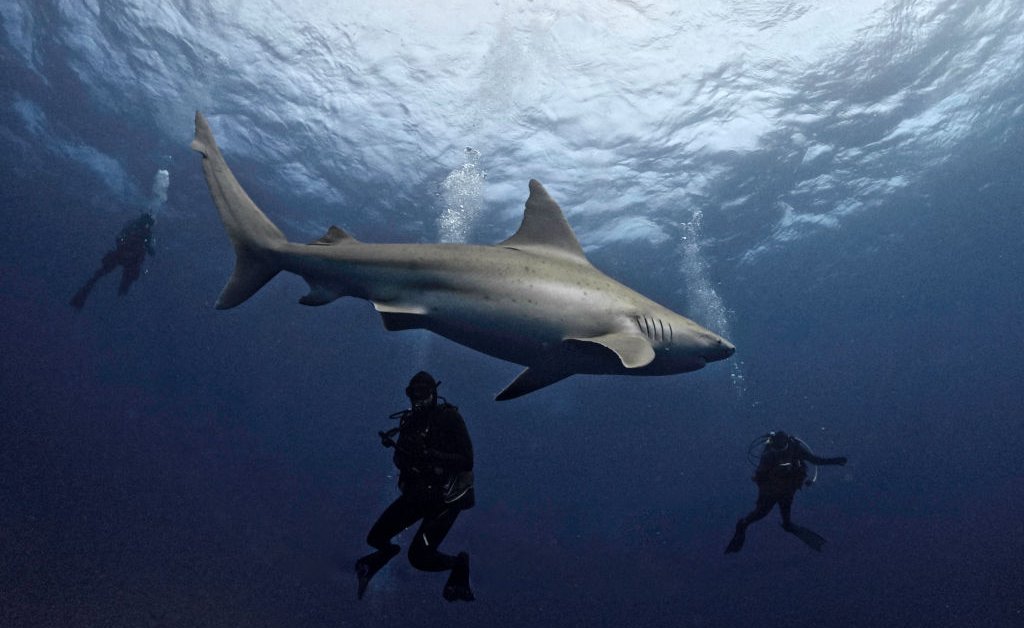How The Film "Jaws" Affected Public Perception Of Sharks And Conservation

Welcome to your ultimate source for breaking news, trending updates, and in-depth stories from around the world. Whether it's politics, technology, entertainment, sports, or lifestyle, we bring you real-time updates that keep you informed and ahead of the curve.
Our team works tirelessly to ensure you never miss a moment. From the latest developments in global events to the most talked-about topics on social media, our news platform is designed to deliver accurate and timely information, all in one place.
Stay in the know and join thousands of readers who trust us for reliable, up-to-date content. Explore our expertly curated articles and dive deeper into the stories that matter to you. Visit Best Website now and be part of the conversation. Don't miss out on the headlines that shape our world!
Table of Contents
Jaws' Lasting Bite: How a Blockbuster Film Shaped Public Perception of Sharks and Conservation
Summer 1975. A monstrous great white shark terrorizes a quiet beach town, leaving a trail of bloody carnage in its wake. Steven Spielberg's Jaws wasn't just a box office phenomenon; it irrevocably altered the public's perception of sharks, sparking a wave of fear and misunderstanding that continues to impact shark conservation efforts today.
The "Jaws" Effect: Fear and Misinformation
Before Jaws, sharks held a more nuanced place in the public consciousness. While some feared them, others admired their power and grace. The film, however, painted a terrifyingly simplistic picture: sharks as mindless, man-eating killing machines. This portrayal fueled a widespread shark phobia, or galeophobia, leading to increased fear and negative attitudes towards these magnificent creatures.
The immediate aftermath of the film's release saw a dramatic surge in shark hunts. Beach closures became commonplace, and many people avoided swimming in the ocean altogether. This fear, largely fueled by the film's sensationalized depiction, overshadowed the critical role sharks play in maintaining healthy ocean ecosystems.
The Long Shadow on Shark Conservation
The impact of Jaws extends far beyond the initial panic. The film's legacy is inextricably linked to the ongoing struggle for shark conservation. The heightened fear and negative perception contributed to:
- Increased Shark Cullings: Many coastal communities, responding to public pressure and fueled by fear, implemented aggressive shark culling programs, significantly depleting shark populations.
- Misinformation and Stigma: The film's portrayal of sharks solidified harmful stereotypes, perpetuating misinformation and hindering conservation efforts focused on education and understanding.
- Funding Shortfalls: While organizations dedicated to marine conservation work tirelessly, the negative perception of sharks often leads to reduced public and private funding for crucial research and protection initiatives.
Beyond the Fear: Understanding the Reality
It's crucial to remember that shark attacks are exceedingly rare. While shark attacks do occur, the odds of being attacked are incredibly low. Statistically, you're far more likely to be injured by a bee sting or struck by lightning. The reality is that sharks are vital to the health of our oceans. They are apex predators, crucial to maintaining the balance of marine ecosystems. Their decline poses a significant threat to ocean biodiversity and the health of our planet.
Moving Forward: Conservation Efforts and Education
Several organizations are working diligently to combat the negative perceptions created by Jaws and promote shark conservation. These efforts include:
- Educational Campaigns: Increasing public awareness about the importance of sharks and dispelling myths surrounding shark attacks.
- Scientific Research: Understanding shark behavior, migration patterns, and population dynamics to inform effective conservation strategies.
- Protected Areas: Creating marine protected areas to safeguard critical shark habitats.
- Sustainable Fishing Practices: Promoting responsible fishing practices to reduce bycatch (unintentional capture of non-target species, including sharks).
A Call to Action: Protecting Our Oceans' Guardians
While Jaws remains a cinematic masterpiece, its impact on public perception of sharks serves as a cautionary tale. We must move beyond the fear propagated by the film and embrace a more informed and compassionate understanding of these vital creatures. Supporting shark conservation efforts, promoting responsible ocean stewardship, and educating ourselves and others are crucial steps towards ensuring the survival of sharks and the health of our oceans. Learn more about shark conservation by visiting organizations like and . Let's ensure that future generations can appreciate the majesty of sharks, not just fear them.

Thank you for visiting our website, your trusted source for the latest updates and in-depth coverage on How The Film "Jaws" Affected Public Perception Of Sharks And Conservation. We're committed to keeping you informed with timely and accurate information to meet your curiosity and needs.
If you have any questions, suggestions, or feedback, we'd love to hear from you. Your insights are valuable to us and help us improve to serve you better. Feel free to reach out through our contact page.
Don't forget to bookmark our website and check back regularly for the latest headlines and trending topics. See you next time, and thank you for being part of our growing community!
Featured Posts
-
 Exploring Under The Cover With Actor Michael C Hall
Jun 18, 2025
Exploring Under The Cover With Actor Michael C Hall
Jun 18, 2025 -
 Lakers Jazz Trade Speculation Heats Up Is John Collins The Target
Jun 18, 2025
Lakers Jazz Trade Speculation Heats Up Is John Collins The Target
Jun 18, 2025 -
 Underdog Moutet Triumphs Dramatic Victory Over Fritz At Queens Club
Jun 18, 2025
Underdog Moutet Triumphs Dramatic Victory Over Fritz At Queens Club
Jun 18, 2025 -
 The High Stakes Of Summer 2024 Trump Vs Climate Science
Jun 18, 2025
The High Stakes Of Summer 2024 Trump Vs Climate Science
Jun 18, 2025 -
 Inappropriate Comment Costs Phillies All Star A Game Full Story
Jun 18, 2025
Inappropriate Comment Costs Phillies All Star A Game Full Story
Jun 18, 2025
